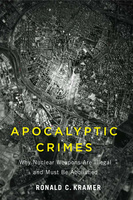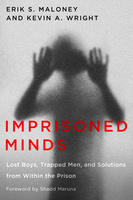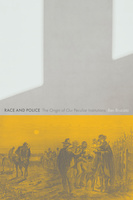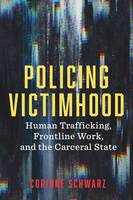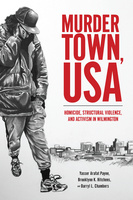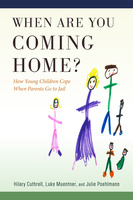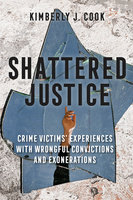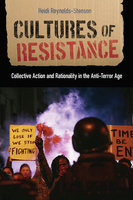American Infanticide
Sexism, Science, and the Politics of Sympathy
Emile Weaver seemed like the perfect college student—a studious, athletic, and popular sorority sister. So why did she kill her newborn baby? American Infanticide answers this question by situating Emile’s tragic crime in a long intellectual and social history that reveals why our legal responses to infanticide are so deeply misguided.
Apocalyptic Crimes
Why Nuclear Weapons Are Illegal and Must Be Abolished
Ronald C. Kramer applies theories from criminology to argue that possession of nuclear weapons is a criminal act and shows how a nuclear apocalypse might be averted, offering a pathway to the abolition of these devastating weapons.
Imprisoned Minds
Lost Boys, Trapped Men, and Solutions from Within the Prison
Imprisoned Minds tells the stories of men in prison that few people ever hear. Six gripping, first-person narratives of unimaginable childhood trauma and neglect set the men on a pathway for prison or death. We finally hear their stories because the author is in prison alongside them—incarcerated for life at the age of 21.
Race and Police
The Origin of Our Peculiar Institutions
Policing Victimhood
Human Trafficking, Frontline Work, and the Carceral State
Murder Town, USA
Homicide, Structural Violence, and Activism in Wilmington
When Are You Coming Home?
How Young Children Cope When Parents Go to Jail
Way Down in the Hole
Race, Intimacy, and the Reproduction of Racial Ideologies in Solitary Confinement
Shattered Justice
Crime Victims' Experiences with Wrongful Convictions and Exonerations
Shattered Justice presents original crime victims’ experiences with violent crime, investigations and trials, and later exonerations in their cases. Cook reveals how homicide victims’ family members and rape survivors describe the painful impact of the primary trauma, the secondary trauma of the investigations and trials, and then the tertiary trauma associated with wrongful convictions and exonerations.
Cultures of Resistance
Collective Action and Rationality in the Anti-Terror Age
Cultures of Resistance brings new insight to a key question: do government efforts to repress social movements effectively repress dissent, or do they spur mobilization? Through analyses of activists’ experiences of repression and resistance, the book uncovers processes that shape how individuals understand the risks of participating in collective action. Reynolds-Stenson demonstrates how individual rationality is collectively constructed.


